Doug Casey on How the Climate Hysteria Is Lowering Your Standard of Living
The following interview was held by an alternative media website with famous investor Doug Casey.
International Man: The carbon hysteria extends far beyond oil and gas companies. One overlooked area is household appliances. Politicians are implementing increasingly stringent regulations for dishwashers, washing machines, and other appliances. There have even been reports of a desire to phase out gas stoves. What’s your take on all of this?
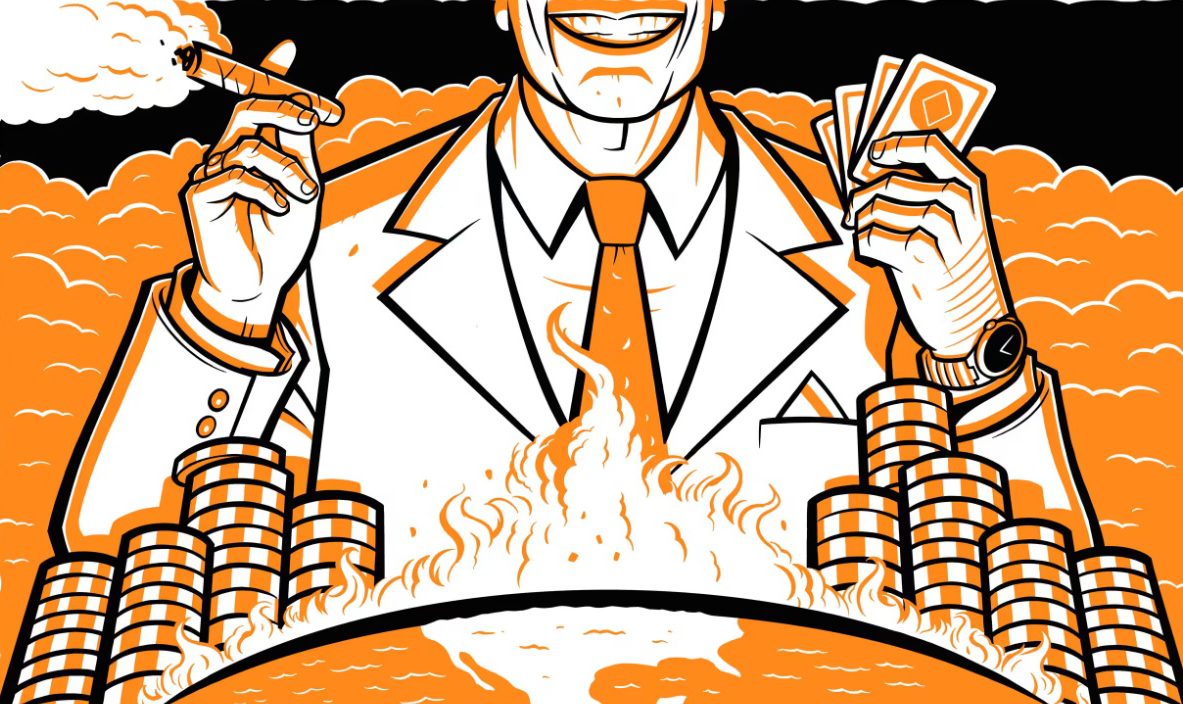
Doug Casey: As Der Schwabenklaus of the World Economic Forum boldly said some years ago, “You’ll own nothing and be happy.”
The fact that a prominent figure could actually say that, promote the idea, and not be pilloried gives you an idea of the spirit of the current century. The lack of outrage from the average man is even more worrying than the idea itself.
Not owning appliances is a practical application of the meme, but just one tentacle of the global warming octopus. Appliances are constructed from resources that have to be mined and run with electricity; that makes them evil. It’s much more important in these people’s views to “save the planet”—a ridiculous concept—than to continue raising the standard of living.
The fact is that the self-righteous authoritarians who want to limit the use of appliances basically just hate people—especially middle-class people. They’d really like to revert to pre-capitalist times, when only the upper classes, the feudal aristocrats, could benefit from conveniences.
Ecowarriors, the Greens, are cut from the same cloth as socialists, communists, and fascists. Their totem fruit is the watermelon, green on the outside and red on the inside.
I.M.: Many people have noticed that modern appliances are not the same quality as the ones produced decades ago. For starters, modern appliances tend to require much more time to do the same action an older model could do faster. For example, today, it’s common to see a standard dish-washing cycle to take more than two hours. Modern appliances also don’t perform as well and break down more frequently. Climate regulations are largely to blame for this regression. What is really going on here?
D.C.: I don’t have a lot of personal experience with how appliances work, but I’ve certainly heard that modern appliances are designed to sacrifice convenience and time in order to possibly use less water or electricity.
Something that I do recall is that several decades ago, the US government decided to regulate the amount of water that could be used to flush toilets. The devices are now less sanitary and often have to be flushed twice. The idea that politicians should mandate plumbing designs is absurd. But they do this with all products—cars, planes, houses, you name it. They destroy capital and slow technological progress, even while annoying and frustrating engineers.
But perhaps the average person doesn’t think about these, nor care. The standard of living has gone up for so long that we tend to think it’s automatic and divinely ordained. I’m not so sure about that. Everything tends to wind down unless there is enough outside force to counteract it.
For instance, we live in a throwaway society. If you need something repaired, it’s generally more economic to throw the whole thing away than to hire a skilled craftsman to fix it, even though they barely exist anymore, and they’re very expensive. It’s often cheaper to replace things that break.
Is that truly economic or not? I’m not sure, but we can see it even with houses. Once upon a time, houses were built to last 100 years or longer. They were a major capital investment. But now, they seem to be the residential equivalent of IKEA furniture. They’re disposable assets. But who cares if you’re renting or have a large mortgage?
I can understand how a “throwaway” point of view might be good sometimes, even though it seems wasteful, simply because technology improves. Out with the old, in with the “new and improved.” Most changes make electricity, plumbing and insulation more economic. Who wants old stuff when technology can give you new stuff that works better? The problem, however, might be that new appliances are expensive and often financed. Your standard of living might go up in the short run but further down in the long run as you deal with debt.
A case can be made for everything being bulldozed after 50 or 100 years—a cycle of life argument. You may want to keep an old car for sentimental reasons, but newer cars really do work better. Although you’ll probably have to finance it over seven years since they’re so expensive. Or lease it, turning a minor asset into a perpetual liability. And if it breaks, you can forget about trying to fix it yourself, if only because of its thousands of computer chips. The same is true with most devices.
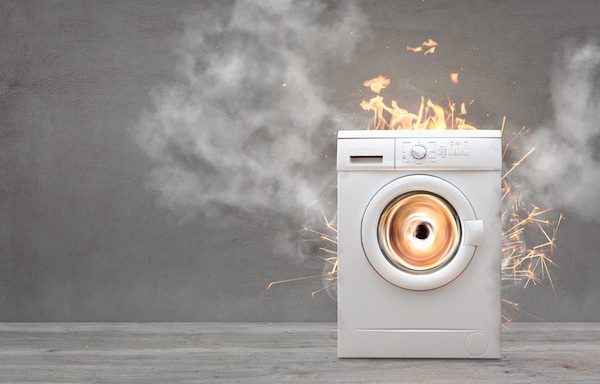
There are reasons to hate appliances and devices even while you need or even love them. But I prefer to make the decision, not some government official. It’s a moral question, not a technical question.
I.M.: Governments present so-called “green” solutions as a step forward to the future. However, in many ways, they represent a big step backward. What is your take?
D.C.: One currently fashionable indication of this is the 15-minute city, which governments are trying to impose all over the world. These would penalize you if you exit your designated 15-minute zone more than X number of times per month. The idea is green. And, like most green notions, it is very retrogressive. They want to return people to the status of medieval serfs, when few ventured more than 15 minutes from their hovels.
The most egregious green solutions, of course, involve spending trillions of dollars to build wind and solar facilities to generate electricity. There’s nothing wrong with using wind or solar power, but they only make sense for specific projects, usually in isolated locations under special conditions.
Wind and solar are totally unsuitable for running an industrial civilization. They’ve gotten much better over the years as technology has advanced, but they’re still more the product of social engineering than mechanical or electrical engineering.
Electric vehicles are another example. As a lifelong car guy, I see advantages to EVs. They have very low centers of gravity, which, everything else being equal, makes them handle much better than equivalent internal combustion engine cars. They have many fewer moving parts, which adds to reliability and efficiency. They’re quieter, emissions-free on the road, and lightning-fast. These are big pluses.
But on the downside, they’re a nightmare when it’s too cold or too hot; temperature extremes drain batteries, and it’s still quite inconvenient to charge them. That’s assuming the huge extra load they entail doesn’t cause the whole “sustainable” wind/solar grid to collapse.
Of course, battery technology will improve, so they may yet fulfill their promise. But in the meantime, when the lithium battery needs replacement, you might as well junk the car. Plus, they tend to be ultra-expensive to repair if you’re in a fender bender and potentially quite dangerous under certain conditions.
Unless I either want a high-performance plaything or was in an ideal environment where I’m just using it locally, EVs don’t currently make much sense.
In fact, almost all “green” solutions are uneconomic, counterproductive, and even destructive.
I.M.: The rise of carbon hysteria has coincided with rising inflation. For example, the average person might typically be expected to be upset by a drastic rise in energy prices. But his anger is muted and misdirected by the media, academia, Hollywood, and politicians telling him that his reduced standard of living is somehow helping save the planet. It seems like the carbon hysteria is a mass campaign to gaslight people into accepting a lowering of their standard of living. What is your view on the relationship between inflation and the carbon hysteria?
D.C.: Well, inflation is caused by money printing. The carbon hysteria will mostly be financed by money printing. So, there’s an indirect relationship. But it’s actually worse than that.
It’s long been said that war is “the health” of the State. We’re now looking at an insane war on carbon to supposedly save the planet. Carbon is not only the basis of all life, but CO2 levels are only marginally above what’s necessary to sustain plant life.
It’s genetically inbred in people to pull together during a war. The eco-hysterics ask: “What could be more important than a war to save the planet?” So, of course, thoughtless people will accept less and do what they’re told. In my view, this is all complete nonsense.
If they tell the plebs that inflation is somehow necessary to fight deadly CO2 and save the planet, then the average pleb will probably go along, since he’s got almost no knowledge of economics, and even less of science.
The planet will be just fine. It’s been here for 4.5 billion years and will be here for billions more, long after humanity has disappeared or gone elsewhere. Anyway, the climate hysterics don’t really care about “saving the planet”; even they aren’t quite that stupid. What’s going on is that they actually hate humanity. The world is suffering from an episode of mass psychosis.
My reaction is to push against them wherever possible.
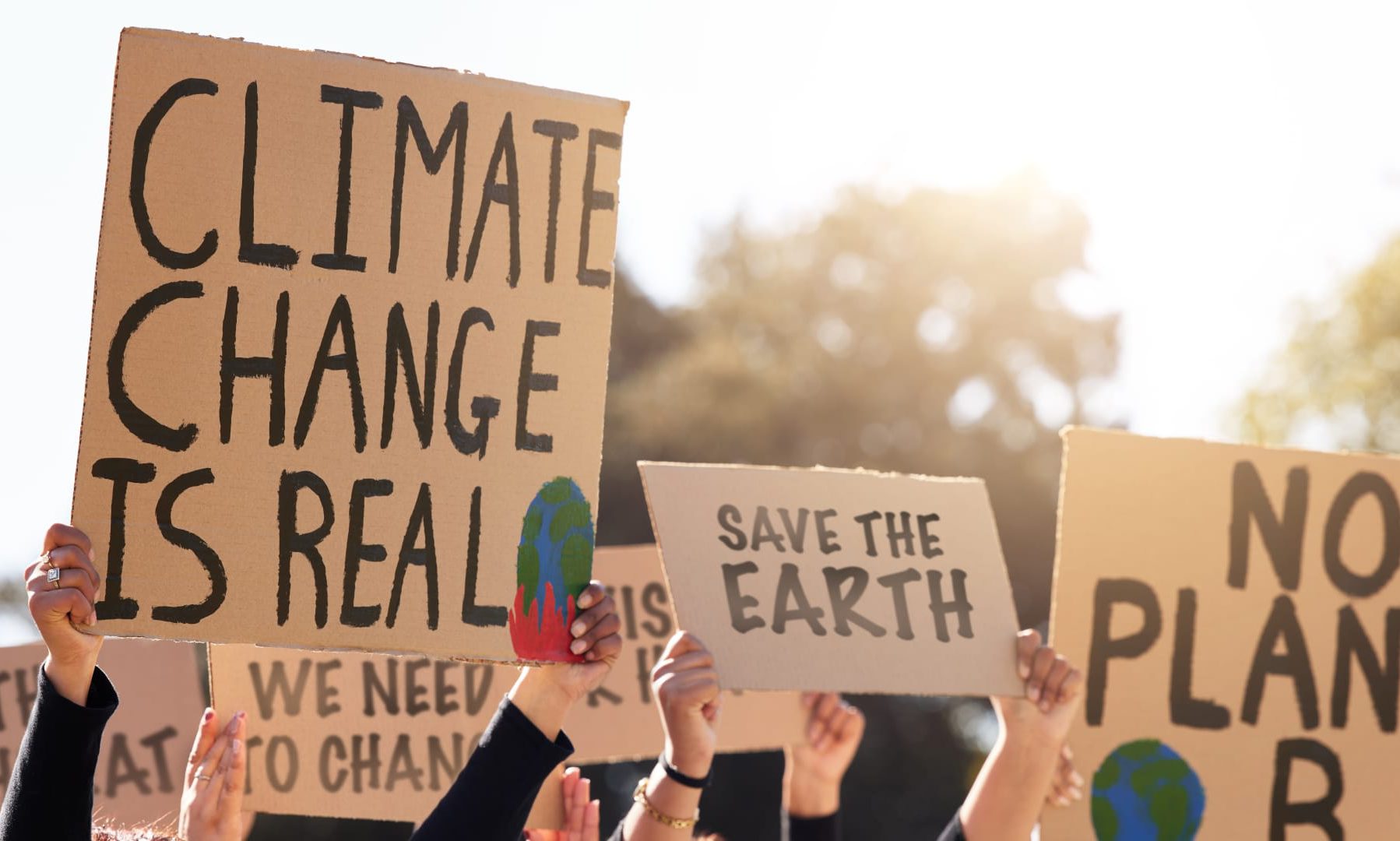
I.M.: Where is the carbon hysteria trend headed? Have we hit the high water mark?
D.C.: Well, we have to look at both long-term and short-term trends.
The long-term trend—the ascent of man—has been in motion for at least 10,000 years. It’s been advancing exponentially with more scientific breakthroughs, leading to better technology and a higher standard of living. Will that trend stop? I’d like to think it will not only continue but accelerate.
But there have been counter trends within that very favorable long-term trend. The Bronze Age collapse around 1200 BC set civilization back for over 400 years. The fall of Roman civilization in the West led to the Dark Ages from roughly the fifth through the ninth centuries. Could we be on the cusp of something similar? There are plenty of reasons for concern. But let’s not engage in fear.
I hate to think something so dire is in the cards. But Dark Riders are at large, and the eye of Sauron is scanning the world. The tendency towards authoritarianism or even totalitarianism worldwide is growing—not to mention the possibility of World War III.
The descending trends go way beyond carbon hysteria and appliances that don’t work very well.
I.M.: Western countries are leading the charge in restructuring their economies around the issue of climate change. They’re committed to a comprehensive agenda to “decarbonize” their economies by 2050. What’s your take on this?
D.C.: To sum it up in one word, it’s insane. In two words, it’s criminally insane.
Before the Industrial Revolution, the overwhelmingly major fuel source was wood. After that, we went to coal, which was a big improvement in density of energy and economics. Then, we went to oil, another huge improvement in energy density and economics.
These occurred not because of any government mandates but simply because they made both economic and technological sense. If the market had been left alone, the world would undoubtedly be running on nuclear. Nuclear is unquestionably the safest, cheapest, and cleanest type of mass power generation. This isn’t the time to go into the numerous reasons that’s true. But if nuclear had been left unregulated, we’d already be using small, self-contained, fifth-generation thorium reactors, generating power almost too cheap to meter. The world would already be running on truly clean green electricity.
Instead, time, capital, and brainpower have been massively diverted to so-called “ecological” power sources—mainly wind and solar—strictly for ideological reasons. The powers that be want to transition the whole world to phony green energy, like it or not.
With further technological advances, they may become more economic someday. Perhaps people will eventually put large collectors in high Earth orbit and microwave the power down to the surface. There are all kinds of sci-fi possibilities. But right now, “green” is just a nice word for “stupid,” “ideological,” or “government-sponsored.”
Choosing the green way takes power away from the markets, which is where people vote with their dollars. It instead places power in the hands of ideologues and bureaucrats.
In brief, wind and solar are being promoted at the very time, nuclear and fossil fuels are being damned. It’s the opposite of what should be taking place and a very bad trend from every point of view.
Put me down as liking the birds and the bunnies as much as anyone else, but I’m anti-green. Anyway, ecofreaks don’t really care about the birds and the bunnies so much. That’s just a veneer. They actually just hate people and really want them to disappear. At a minimum, they want to control them. And the great global warming/anti-fossil-fuel hysteria is a great way to do it.
I.M.: As a part of this agenda, the US, the EU, and OECD countries plan to phase out oil, gas, and other fuels, replacing them with zero or low carbon sources of energy. What kind of disruptions could we see as the transition is made to energy sources that may not be as reliable?
D.C.: Lots of disruptions, many of them both huge and currently unanticipated. The US has 330 million people. Why should decisions for hundreds of millions be made by bureaucrats and political hacks in Washington, DC?
Why should they be the ones who decide what kind of power should or should not be used? That’s a question that nobody asks. People simply assume that that’s the way it should be and largely do as they’re told. They never stop and consider that governments have set progress back immeasurably over history. The main products of government are wars, pogroms, confiscations, taxes, regulations, and the like.
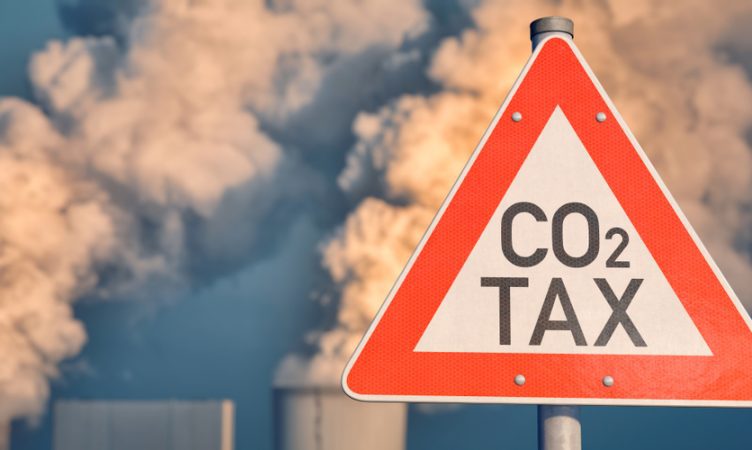
Oil companies like Shell and BP are talking about getting out of the oil business. Oil companies and their employees and investors are looked down upon as the destroyers of the world. Nobody in polite society wants to admit that they’re in the oil business.
Before you drill an oil well anywhere in the world, it’s necessary to ask permission from one or more government entities. In the Western world, where the public has been captured by the notions of PC and ESG, governments are loath to issue drilling permits. Drillers don’t want to drill because costs are artificially high, and any profits will be subject to discouraging taxes.
Expect oil production to drop in the West. Throughout the ’50s, ’60s, ’70s, and ’80s, more oil was discovered than was being used. Reserves went up. But that’s no longer the case. It’s not because the oil isn’t there; it’s because it’s too politically incorrect to look for it and exploit it.
Furthermore, scientists, engineers, and investors are staying away from anything to do with fossil fuels. You can plan on both fuel shortages and much higher costs. Markets are being subverted and are becoming ever more politicized.
In addition, so-called “green technologies” aren’t really green. They just seem green on the surface. Giant windmills and solar farms rely on massive amounts of fossil fuels and metals to be manufactured and installed. They have limited lifespans, and they need to be disposed of. Not only can’t they provide mass quantities of power consistently, but they all show losses, even after-tax benefits disguise them. That destroys capital. They’re not signs of progress but monuments to waste and destruction. We’re going to have huge disruptions in the energy markets in the years to come, and since the whole world runs on energy, it’s really serious.
I.M.: Broadly speaking, is the new climate change “crisis” an invitation for more government intervention in the world?
D.C.: Yes. It’s like inviting a vampire into your house.
For many decades, kids have been indoctrinated with ideas about counterproductive conservation and Greenism. Comic books, schoolbooks, teacher’s lectures, television—you name it—present the earth as being under attack from the forces of darkness. Mankind—especially the scientists, engineers, and entrepreneurs—are shown exploiting and raping Mother Nature and her natural resources. They’re presented as evil.
Bronowski’s Ascent of Man has been subverted into a battle of good versus evil, where all the values have been turned upside down. The problem has permeated society, and it’s even worse in the education system.
St. Ignatius Loyola, who founded the Jesuits, and Vladimir Lenin, who founded the USSR, both said words to the effect of “If you can indoctrinate a child during his early years, you’ve basically set his direction of thinking for life.” They were right.
Government is always presented as noble, wise, and forward-thinking. It’s presented as the savior stepping in to stop the evil producers.
It is one of a number of false and horribly destructive memes stalking the Earth today like spectres. The increasing belief in government as a magic solution to problems decreases the average person’s standard of living tremendously and creates all kinds of distortions throughout society. It’s turned the study of economics into a pseudoscience, and its incursions into science are discrediting the idea of science itself.
In fact, the two big hysterias plaguing the world right now both center on the State involving itself in science—or at least scientism. One is covid, a relatively trivial flu blown out of all proportion. The other is AGW, anthropogenic global warming, which was relatively recently rechristened as climate change.
In my view, both will eventually be completely debunked and discredited. But if you run counter to the narrative on either of them right now, you’ll be cancelled, fired, and/or ostracized.
It’s very much like what occurred to Galileo when he ran counter to the prevailing wisdom of the Middle Ages. They don’t actually burn books anymore, but only because books today are mostly electronic. But they do the equivalent of that on places like Google and Twitter.
There’s an excellent chance that these people will discredit the very idea of science because they’ve wrapped themselves in the veil of science. Or, more precisely, what’s become known as “The Science.” They’re creating something much more serious than just another economic disaster.
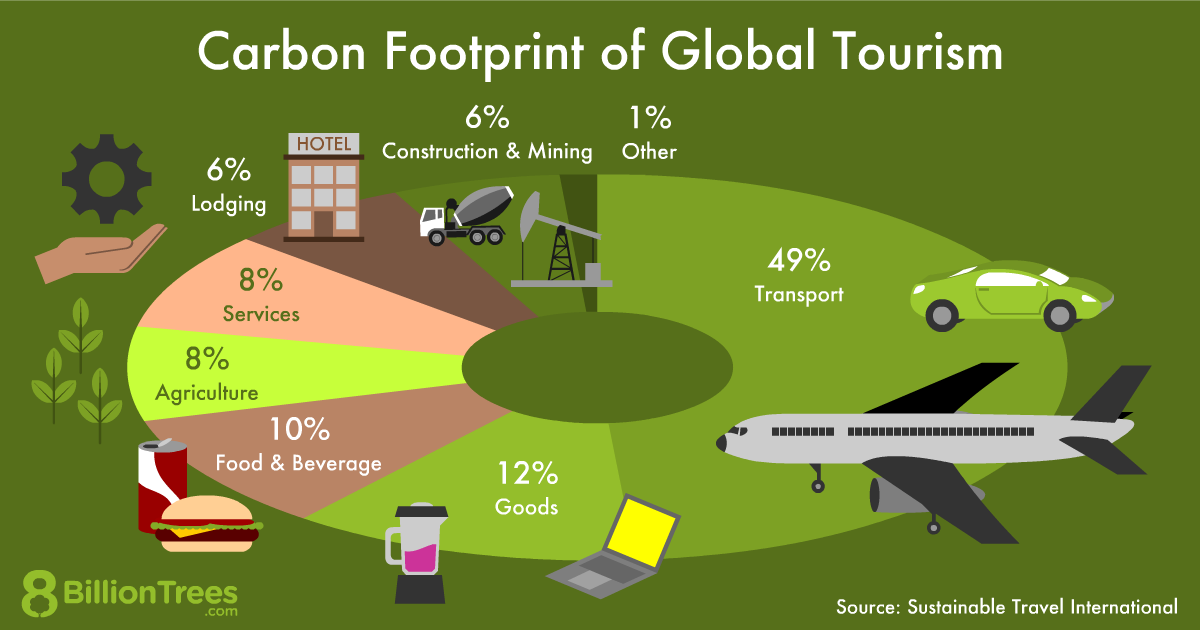
I.M.: This trend seems to be growing in momentum. For example, Google Flights now prominently displays the carbon emissions of each flight it lists. Is that a small first step toward charging people for the carbon they emit?
D.C.: I can assure you that I pay no attention whatsoever to the amount of carbon that I may be burning on a plane or anywhere else. It’s part of a psychological war the Left is waging, using guilt and shame as weapons. It’s another indication of the lockstep, the groupthink, that people are subjected to today.
Life on this planet is based on carbon. The element itself is indestructible and essential, but it’s been transformed into a deadly enemy in the consciousness of the public. But if you deny that it’s destroying the Earth, then you’re committing heresy. Hating carbon and worshipping “The Ecology” have become tenets of a secular religion.
A new carbon tax will be implemented. It’s definitely in the cards. Most people will stupidly roll over and say, “Yes, this is for the good of the planet. It’s a tax we should all pay.”
Of course, governments and the powers that be always want more resources directed towards themselves. In a time when governments are bankrupt and can only generate more money for themselves by printing it, it’s an absolute certainty that the next tax will have a patina of righteousness. A carbon tax on individuals, as well as companies, checks all the boxes.
I.M.: Will carbon credits become a new government-created “commodity” that corporations and people will be forced to purchase?
D.C.: Without question, it’s a clever way to turn a tax into something that looks like an asset, an investment.
Look, this is all about politics and money, but disguised as a religious movement, which is quite clever. There’s no question that Greenism is being promoted as a new religion.
Christianity is a dead duck in Europe, and it’s dying in North America. But people need some type of religion, a replacement for Christianity, to hold on to.
People will be encouraged to treat their taxes as tithes to wash away their sins against Mother Nature—much the way they tithed the church to expunge their sins in the Middle Ages. It’s an exact analogy. They’ll buy “carbon credits” as an analog for building cathedrals and monasteries.
As an economist, as well as someone who reads a lot of science, I think it’s ridiculous and destructive. The whole anti-carbon, carbon sequestration, and Greenism are a political hysteria promoted by people who like to control other people. I’m completely opposed to carbon credits or carbon taxes from that point of view.
Note: We’ve seen governments institute the strictest controls on people and businesses in history. It’s been a swift elimination of personal freedoms.
But this is just the beginning. Most people don’t realize the terrible events that could come next, including negative interest rates, the abolition of cash, and much more.
yogaesoteric
March 1, 2024
